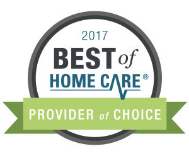The Later Years: Navigating the Risks of Assisted Living for Seniors Over 85

The decision to move a loved one into assisted living is never easy, and for seniors over the age of 85, the complexities and potential risks can multiply significantly. While assisted living facilities offer crucial support for many, the unique challenges faced by the very elderly warrant careful consideration and a nuanced approach.
1. Relocation Stress Syndrome (Transfer Trauma): A Profound Impact
One of the most significant risks for seniors, particularly those in their late 80s and beyond, is "relocation stress syndrome" or "transfer trauma." This condition describes the severe emotional, mental, and even physical distress that can arise from being uprooted from a familiar environment. For an 85-year-old, their long-held home is often a repository of decades of memories, routines, and a sense of identity.
- Emotional Fallout: The loss of control, choice, and familiarity can lead to profound feelings of sadness, anxiety, anger, irritability, and depression. Seniors may withdraw, isolate themselves, or even exhibit combative behavior as a way to express their distress.
- Cognitive Decline: For those with pre-existing cognitive impairments like Dementia, the disruption of familiar surroundings can accelerate cognitive decline, leading to increased confusion, disorientation, and a faster progression of their condition.
- Physical Manifestations: Stress can also manifest physically, with symptoms like poor appetite, weight loss, sleep disturbances, gastrointestinal issues, and an increased risk of falls.
2. Increased Vulnerability to Health Challenges
While assisted living aims to provide a safer environment, the very elderly are inherently more fragile, making them susceptible to certain risks within a communal setting.
- Falls: Seniors over 85 have a significantly higher risk of falls, even in environments designed for safety. Changes in balance, vision, muscle weakness, and certain medications contribute to this. While facilities have safety measures, adjusting to new layouts and routines can initially increase this risk.
- Infections and Illnesses: Living in close quarters with other residents can increase exposure to communicable diseases. The facilities do often implement infection control; however, the compromised immune systems of very elderly individuals make them more vulnerable to severe outcomes from common illnesses.
- Difficulty Adapting to Routines and Medication Management: While assisted living offers medication management, adjusting to the schedule and methods of administration can be challenging for some seniors, particularly those with memory issues. There's a delicate balance between providing necessary oversight and maintaining a senior's sense of autonomy where appropriate (e.g., managing their own less critical medications).
3. Social Isolation, Even in a Community Setting
Surprisingly, some seniors, especially those who are introverted or have social anxieties, may experience increased social isolation in an assisted living facility.
- Loss of Existing Social Networks: Moving can mean leaving behind close friends, neighbors, and community groups that formed a vital part of their social fabric.
- Difficulty Forming New Connections: For someone over 85, forming new friendships can be more challenging. They may struggle to engage in group activities or feel uncomfortable in unfamiliar social situations.
- Lack of Meaningful Engagement: While facilities offer activities, some seniors may find them unengaging or not tailored to their individual interests, leading to feelings of loneliness despite being surrounded by people.
4. The "Will to Live" and Impact on Longevity
Some research suggests a connection between the move to institutional care and a decrease in life expectancy, particularly in the initial months. While underlying health conditions are a primary driver, the psychological impact of the move – the "will to live" – is also a factor. The loss of independence, familiar surroundings, and a sense of purpose can impact a senior's overall well-being and resilience.
5. Staffing Shortages and Quality of Care Concerns
Like many healthcare sectors, the assisted living industry can face staffing challenges. A lack of qualified staff can directly impact the individualized attention and quality of care a very elderly resident receives.
- Reduced Individualized Attention: Short staffing can mean less one-on-one time, potentially leading to missed opportunities for vital social interaction, emotional support, and early detection of health changes.
- Inconsistent Care: High staff turnover or reliance on temporary personnel can lead to a lack of continuity in care, hindering the development of strong staff-resident relationships.
- Challenges with Personal Preferences: Very elderly individuals often have ingrained routines and preferences. Understaffing can make it difficult for facilities to accommodate these, leading to resident frustration and a diminished sense of well-being.
Navigating the Decision:
While these risks are significant, it's crucial to acknowledge that assisted living can be a lifeline for many seniors and their families. The key lies in a thorough and personalized assessment. Before making the move for an 85-year-old or older loved one, consider:
- Their Current Health and Cognitive State: Are they able to adapt to new environments? Do they have significant memory impairment or behavioral issues that might make a transition particularly traumatic?
- Their Personality and Social Needs: Are they outgoing and adaptable, or more reserved and reliant on familiar routines and relationships?
- The Specific Facility: Research the facility's resident-to-staff ratio, staff training, resident engagement programs, and how they support new residents in adapting. Visit multiple times, speak to current residents and their families.
- Alternatives: Explore options like increased in-home care, adult day programs, or family caregiving arrangements if they are feasible and better suit the senior's needs.
Ultimately, the decision to place a senior in assisted living, especially at an advanced age, requires careful consideration of both the potential benefits and the significant risks. A proactive, empathetic, and informed approach can help mitigate challenges and ensure the best possible outcome for your loved one in their later years.

























